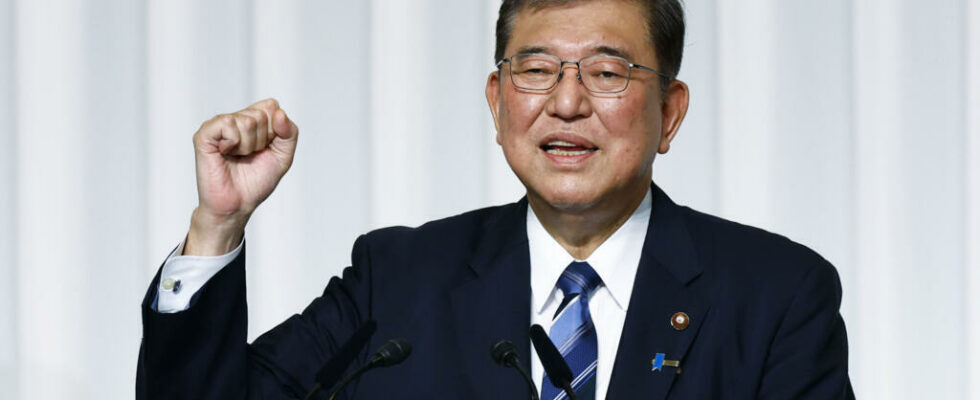Future Prime Minister Shigeru Ishiba wants early legislative elections for October 27. Monday, September 30, the Tokyo Stock Exchange fell sharply, reacting in particular to the appointment of the new Prime Minister.
2 mins
Shigeru Ishiba, who will become Prime Minister of the Japandeclared on Monday September 30 that he intended to call early legislative elections on October 27. “II think it is important that the new government be judged by the people as soon as possible and, if conditions are right, I hope to call elections [législatives] anticipated on October 27 », declared the future head of government during a press briefing.
“ I am aware that it is quite unusual for someone who is not [encore] no Prime Minister makes these kinds of statements… but I don’t think it’s inappropriate “, he added.
The former Minister of Defense was elected, Friday, September 27, leader of the Liberal Democratic Party (PLD), the ruling party which has governed almost without interruption for decades.
Shigeru Ishiba will succeed as Prime Minister to Fumio Kishidawho had given up this summer on running for a new mandate. On Friday, the next head of government declared that he wanted to call early elections to consolidate his mandate. as soon as possible ”, without further details.
Also readJapan: Shigeru Ishiba finally becomes head of the PLD and will replace Fumio Kishida as Prime Minister
A fall of almost 5% in the Nikkei
The appointment of Shigeru Ishiba as prime minister has in any case already been judged by the stock markets. After his election, the Nikkei fell sharply. A fall of almost 5% at the opening for the flagship Japanese index.
A significant drop that experts attribute to two factors. First the appreciation of the yen against the dollar, but above all the fears aroused by the election of Shigeru Ishiba as Prime Minister. Because in his campaign, this veteran of Japanese politics said he was in favor of an increase in corporate tax and a strengthening of the taxation of financial income.
Another campaign promise that worries investors: his desire to boost productivity and increase the hourly minimum wage. It would gradually increase from 1,000 to 1,500 yen, or a little less than 10 euros.
Shigeru Ishiba is also seen as a supporter of the Bank of Japan’s rate hike policy. The stated objective is to lower the price of imported products and therefore stimulate the purchasing power of the Japanese. Still, investors must be reassured. That’s what he tried to do this weekend. Stating that borrowing should remain inexpensive in Japan.
